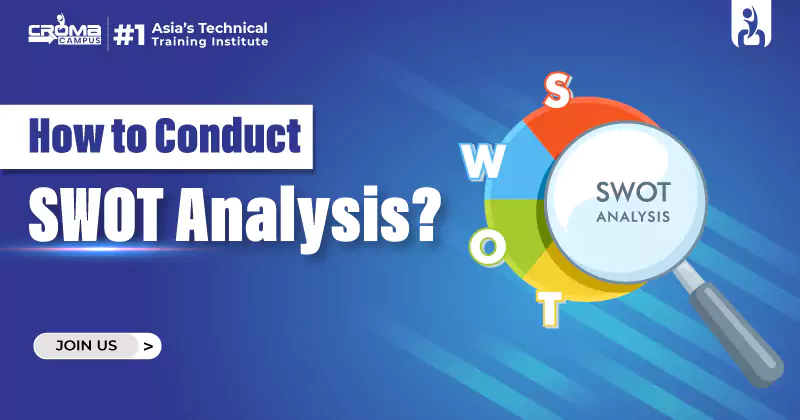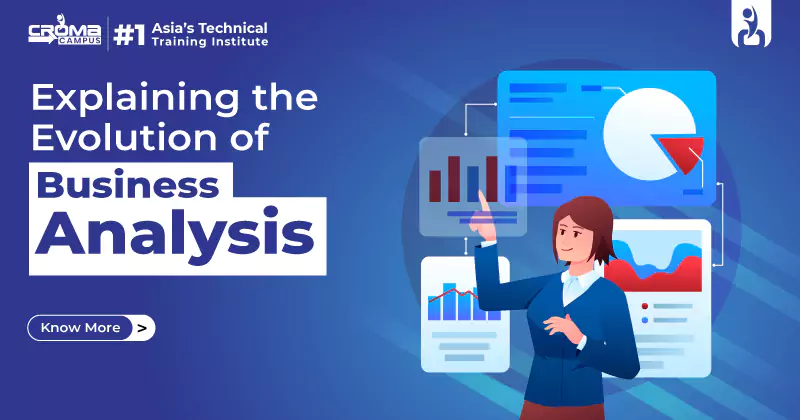Who Is A Business Intelligence Analyst And How To Become One?
4.9 out of 5 based on 9587 votesLast updated on 18th Jul 2024 19.32K Views
- Bookmark

This guide covers the essential skills, education, and practical steps needed to start a career as a Business Intelligence Analyst.

Introduction
In today's data-driven world, Business Intelligence (BI) Analysts play a crucial role in transforming raw data into actionable insights. These professionals harness advanced analytics tools to interpret complex datasets, providing valuable information that guides strategic decisions. Aspiring professionals can join the Top Business Analyst Courses for the best guidance and training.
This guide explores the essential skills required for Business Intelligence Analyst , education, and practical steps needed to embark on a career as a BI Analyst, shaping the future of organizational decision-making.
Who Is A Business Intelligence Analyst?
Let us begin with the question: what does a business intelligence analyst do?
A Business Intelligence Analyst is a professional who specializes in interpreting and analysing data to help organizations make strategic decisions. They collect data from various sources, clean and transform it into a usable format, and then analyse it using tools like SQL, Tableau, or Power BI. Their primary goal is to identify trends, patterns, and insights that provide valuable information to business stakeholders.
Moreover, Business Intelligence Analysts create reports, dashboards, and visualizations that make complex data sets understandable and actionable for decision-makers. They play a crucial role in translating data into meaningful insights that support business strategies, optimize processes, and improve overall performance. Strong analytical skills, proficiency in data manipulation and visualization tools, and a deep understanding of business operations are essential qualities for success in this role.
Types Of Business Intelligence Analyst
Business Intelligence roles can be broadly categorized into several types based on their specialized skills, focus areas, and the industries they serve:
- Technical BI Analysts: These analysts focus on the technical aspects of BI, such as data extraction, transformation, and loading (ETL), database management, and query optimization. They often have strong skills in SQL, database management systems, and scripting languages.
- Reporting Analysts: Reporting BI Analysts specialize in creating and maintaining reports and dashboards. They ensure that data is presented in a clear, visual format that is easily understandable to stakeholders. Tools like Tableau, Power BI, and Excel are commonly used in this role.
- Data Visualization Specialists: These analysts focus on creating compelling visualizations and interactive dashboards that facilitate data-driven decision-making. They have expertise in data visualization tools and design principles to effectively communicate insights.
- Business Analysts: BI Intelligence Analyst bridge the gap between technical BI teams and business stakeholders. They translate business requirements into technical specifications, analyze data to identify trends and opportunities and provide actionable insights to support strategic decisions.
- Predictive Analysts: These analysts use statistical models and machine learning algorithms to forecast future trends and outcomes based on historical data. They play a crucial role in predictive analytics, helping organizations anticipate market changes and optimize business strategies.
- Industry-specific Analysts: Some BI Intelligence Analysts specialize in specific industries such as healthcare, finance, retail, or marketing. They possess deep domain knowledge and understand industry-specific metrics and KPIs, enabling them to provide tailored insights and solutions.
Each type of BI Analyst brings unique skills and perspectives to the table, contributing to the overall goal of leveraging data to drive business growth, efficiency, and decision-making.
You May Also Read These Posts:
Upcoming Job Roles For Business Analysts
Business Analyst Interview Questions
How To Become Business Analyst
Process Mapping In Business Analysis
How To Become A Business Intelligence Analyst?
Becoming a Business Intelligence (BI) Analyst involves acquiring a combination of education, technical skills, and practical experience. Consider checking the Business Analyst Course Content to know what you are going to learn.
Here are the steps you can take, and the Business Intelligence Analyst requirements to pursue a career in this field:
1. Obtain the Right Education
- Bachelor’s Degree: Most BI Analyst positions require at least a bachelor’s degree in fields such as:
- Business Administration
- Information Technology
- Computer Science
- Statistics
- Economics
- Relevant Courses: Take courses that focus on data analysis, database management, statistics, and business intelligence tools. These Business Intelligence Analyst qualifications provide foundational knowledge essential for understanding data and its application in business contexts.
2. Develop Technical Skills
- Data Analysis Tools: Gain proficiency in tools commonly used in BI, such as SQL for database querying, Tableau or Power BI for data visualization, and Excel for data manipulation and analysis.
- Programming Languages: Learn scripting languages like Python or R, which are valuable for data manipulation, statistical analysis, and automation tasks in BI.
- Database Knowledge: Understand database management systems (DBMS) and how to work with large datasets, including data cleaning, transformation, and integration.
3. Gain Practical Experience
- Internships: Seek internships or entry-level positions in data analysis, business intelligence, or related fields. Internships provide hands-on experience working with real-world data sets and BI tools.
- Freelance Projects or Personal Projects: Develop your skills by working on freelance projects or personal projects that involve analysing data and creating visualizations or reports. This can help build a portfolio to showcase your abilities to potential employers.
4. Build a Strong Portfolio
- Create Sample Projects: Develop sample dashboards, reports, or case studies that demonstrate your ability to analyse data and derive actionable insights. Highlight your skills in data visualization, SQL queries, and problem-solving.
- Certifications: Consider obtaining certifications in BI tools such as Tableau Desktop Specialist, Microsoft Certified: Data Analyst Associate, or AWS Certified Data Analytics - Specialty. These certifications validate your skills for BI Analyst and enhance your credibility as a BI Analyst.
5. Develop Soft Skills
- Communication: BI Analysts must effectively communicate complex data insights to non-technical stakeholders. Develop strong verbal and written communication skills to articulate findings and recommendations clearly.
- Analytical Thinking: Sharpen your analytical skills to interpret data, identify trends, and draw meaningful conclusions that contribute to business strategy and decision-making.
6. Stay Updated and Network
- Continuous Learning: Stay abreast of industry trends, new BI tools, and emerging technologies in data analytics. Attend webinars, workshops, and conferences to expand your knowledge and Business Intelligence Analyst skills.
- Network: Join professional associations, online forums, and LinkedIn groups related to BI and data analytics. Networking can provide opportunities to learn from industry professionals, explore job openings, and build connections that may advance your career.
7. Pursue Career Opportunities
- Job Search: Start applying for BI Analyst positions that align with your skills and interests. Tailor your resume and cover letter to highlight relevant experiences and projects.
- Interview Preparation: Prepare for interviews by reviewing common BI interview questions, practicing SQL queries, and being ready to discuss your portfolio projects and problem-solving approach.
By following these steps, you can build a solid foundation in business intelligence, acquire the necessary Business Intelligence Analyst requirements and experience, and position yourself for a successful career as a BI Analyst. Continuous learning and adaptation to evolving technologies will also be crucial as you progress in this dynamic field.
Conclusion
In summary, becoming Business Intelligence Analysts requires a blend of technical expertise, analytical acumen, and practical experience. By acquiring the right education, developing essential Business Intelligence Analyst skills, and building a strong portfolio, aspiring professionals can embark on a rewarding career path in leveraging data to drive strategic business decisions.*
Subscribe For Free Demo
Free Demo for Corporate & Online Trainings.










.jpg)














.webp)

.png)















